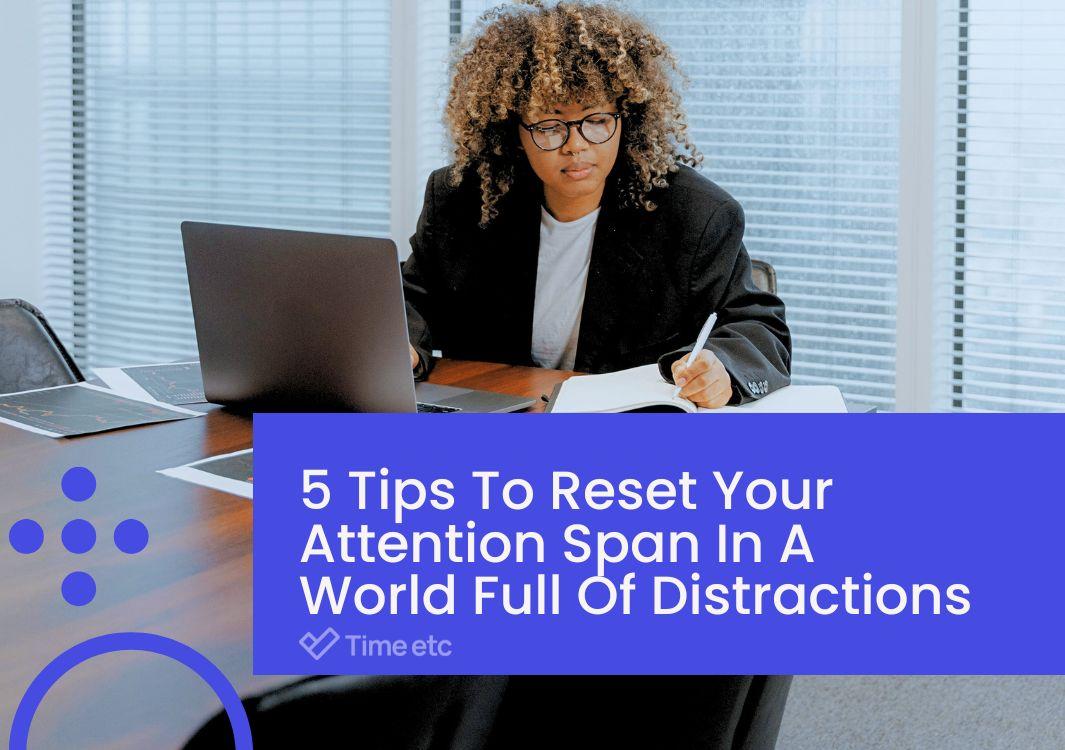In today's hectic and competitive world, entrepreneurs are working longer hours than ever before in their efforts to make their businesses a success. And thanks to smartphones, it’s never been easier to run a business from anywhere at any time.
But that’s not always a good thing.
Trying to be as productive as possible during your workday can take a lot out of you, but constantly checking your phone and responding to emails at all hours can be exhausting, to put it lightly.
Living in a never-ending cycle of work and stress can lead to a host of negative consequences, including decreased productivity, poor mental and physical health, and even an increased risk of heart disease.
This is why it's so important for entrepreneurs to disconnect at the end of every day and maintain a healthy balance between work and home life.
"I believe in taking breaks, disconnecting, and recharging. It's important to not only take care of your body but also your mind" - Elon Musk, CEO of SpaceX and Tesla
Strategies for disconnecting from work
1. Set a firm schedule
One of the most important things you can do to prevent your professional and personal lines from blurring is to set a schedule and stick to it. This way, you can more easily establish boundaries and give yourself a clear sense of when you should be working and when it's time for the things and people that matter most to you at home.
Start by thinking about specific hours you are available and want to work. It's worth taking this opportunity to think about how you currently structure your day. Is your routine serving you as well as it could?
It's important to remember that we all have different needs, so what works for one person might not work for another. You know yourself better than anyone else, and understanding your natural energy flows is key to unlocking your full potential every day. Start by asking yourself the following questions:
- When do you have the most energy?
- What helps you work at your best?
- When do you find yourself most prone to distractions?
Knowing the answers to these questions will help you uncover patterns and tricks that will help you to fully optimize your day.
In order to stick to these firm limits around your schedule, clearly-communicated boundaries are crucial to ensure that everyone understands and respects your time commitments. For example, you may need to let business associates know that you're unavailable on weekends, or make it clear to loved ones that you shouldn't be disturbed during your designated work hours. By being proactive and communicating your needs, you can manage expectations and minimize conflict, both at work and at home.
2. Get more done during work hours
If you want to leave work at work at the end of the day, you need to get more work done during work hours. You don't want to be up at 3 a.m. thinking about that task you were supposed to do but weren't able to complete.
Here are some simple, effective techniques to help get you started:
Time-blocking
Time-blocking is a popular and effective technique to help improve time management and boost productivity. This simply means breaking up your day into specific blocks of time, where each block is dedicated to working on a particular task, or group of tasks.
For example:
- 09:00-10:00: Most important task (more on this later!)
- 10:00-11:00: Write report
- 11:00-11:15: Break
- 11:15-11:45: Plan agenda for meeting
- 11:45-12:45: Research
Rather than keeping an open-ended to-do list of things you’ll complete as and when, time blocking encourages you to be more intentional about how you spend your limited time each day. Giving yourself a set start and finish time for completing tasks means you'll be more likely to get it done within that period.
Not only that, scheduling time to dedicate to a single project or task allows you to put all of your mental resources towards one thing, rather than scattering your attention across multiple tasks. The more you “mono-task”, the stronger the mental muscles required for deep work become, and the easier it becomes to stay focused.
Complete your hardest or most important task first
In his bestselling book, self-development and productivity expert Brian Tracy introduced the "Eat That Frog" technique to get more done each day.
“If it's your job to eat a frog, it's best to do it first thing in the morning. And if it's your job to eat two frogs, it's best to eat the biggest one first” - Mark Twain
Your “frog” is your biggest, most important task. According to Tracy, “The key to reaching high levels of performance and productivity is to develop the lifelong habit of tackling your major task first thing each morning. You must develop the routine of 'eating your frog' before you do anything else and without taking too much time to think about it.”
Even if you do nothing else for the rest of the day (as unlikely as that may be!), you can rest assured that the important work is done and any progress towards your goals is better than none. Any other work you can tick off beyond that is a bonus!
Deep work
It's tough to make progress and achieve our goals when we're constantly bouncing between emails, notifications, and meetings. This can make us feel busy, but it doesn't necessarily mean we're being productive.
The ability to fully immerse yourself in a single important task is another effective technique to help you achieve more during your work day. This is known as "deep work"—working in a distraction-free environment on a single task that is challenging, requires a specific skill set, and produces high-value results.
To practice deep work, you'll need to utilize time blocking to help make sure you stay focused on your chosen task.
You'll also need to choose a workspace that’s as distraction-free as possible. Aim to use this workspace consistently for all deep work sessions, if you can. Your brain will quickly start to associate this area with focus and concentration, and you’ll be able to get into the zone much easier.
Avoid distractions
Distractions are one of the biggest barriers to getting work done. Whether it's a co-worker stopping by your desk to chat, a social media notification, or a loud noise outside your window, it’s not just the time lost to the distractions themselves that can derail your productivity, it’s also the time we spend afterward (around 23 minutes!) trying to refocus and get back on track.
While it's not always possible to eliminate all distractions, there are some things you can do to minimize their impact. For example, try working in a quiet room if possible, setting aside specific times for breaks, and turning off any non-essential notifications. By taking some time to plan ahead and create a distraction-free environment, you can increase your chances of getting work done quickly and efficiently.
Delegate low-impact tasks
According to recent figures, the average business owner spends 32% of their time working on strategic and revenue-generating activities that lead to increased profitability and growth for their business. The other 68% is mainly spent on day-to-day, back-office tasks.
Think about what you're currently able to achieve with 32% of your time spent on high-impact tasks, now imagine what you could achieve with 90%!
If a task doesn’t require your specific knowledge or expertise, and it would be possible for someone else to do it with the right instructions, then you should consider delegating it.
If you’re unsure which of your regular responsibilities are the best use of your time and which should be delegated, enter them into our free to-do list optimizer.
3. Write a summary of everything you’ve accomplished for the day
Running your own business means that your work never really stops. There’s always something to do. Always something to answer. Always a call to make. The trouble is, it's easy to fall into the trap of feeling like you haven't done "enough". It's this niggling guilt that makes us stay an extra hour at the office, check our emails on our commute home, or open our laptops back up when we should be enjoying personal time at home.
So at the end of each day, take a few minutes to look over your to-do list or calendar and write down everything that you were able to complete. You might be pleasantly surprised at how much you actually achieved when you see it all clearly in black and white.
Many people find this to be a helpful way of reflecting on their progress on a daily basis, as well as curbing any negative feelings around finishing work at a reasonable time.
4. Create a plan for the following day
Even when you're not physically in your office or sitting at your desk, it can be hard to stop all those thoughts about work from buzzing around your head, often late into the night.
A 2018 study into the effects of worry on sleep found that any loose ends or unfinished tasks stay at a “heightened level of cognitive activation” in our minds, which can make it difficult to get those much-needed eight hours each night. Researchers found that the act of writing down uncompleted tasks into a to-do list for the following day decreases cognitive arousal, rumination, and worry, helping you to fall asleep faster and for longer.
So once you've written your summary of everything you've accomplished, jot down what needs to be done tomorrow. This simple habit will help you keep your sanity and ensure that you get enough rest to function at your best.
5. Use your “commute” time
Separating work and home life can be even more challenging when you are working from home, as the boundaries are not as clear as they are in a traditional office setting. Before working remotely became more commonplace, it used to be our commute home that drew a line under each working day.
This is why many ex-commuters have begun using some of the time they would previously have spent traveling to “power down” out of the work zone. Studies have shown that unplugging after work can improve health, happiness, and overall quality of life, so whether it’s taking a walk, listening to music, changing out of your work clothes, taking a relaxing shower, or running errands, do whatever helps you switch to off.
What's the bottom line?
Many entrepreneurs will agree that it's easy to become obsessed with your business. It can be tough to step away and disconnect when you're responsible for so much. That being said, it's important to be able to draw the line when working hours are over, for the sake of your relationships and mental health—not to mention your productivity and creativity.
Luckily, there are a number of strategies to help leave work at work, even for the most always-on entrepreneur. These include setting a firm schedule, getting more done during work hours through techniques such as time blocking, deep work, avoiding distractions, and delegating low-impact tasks. Writing a summary of your daily accomplishments, creating a plan for the following day, and reintroducing your "commute" time if you're a remote worker can all help restore a better work-life balance, too.
Making these small changes in your routine can have a big impact on your work and family life. With a little effort, you can regain control and be a happier, more productive person.
If you’re ready to cut out the distracting, low-value work tasks that stop you from doing more, achieving more, and earning more each day, Time etc is here for you.
Since 2007, our mission has been to help entrepreneurs take back control over their days by matching them with the best virtual assistants for their businesses. Each step of the way, our expert team will carefully assess your needs to make sure you get the right support you need to succeed. We’re so sure you’ll be delighted with your assistant, we offer a complete lifetime satisfaction guarantee.
Speak to our expert team to get started or try a skilled virtual assistant for free today.







